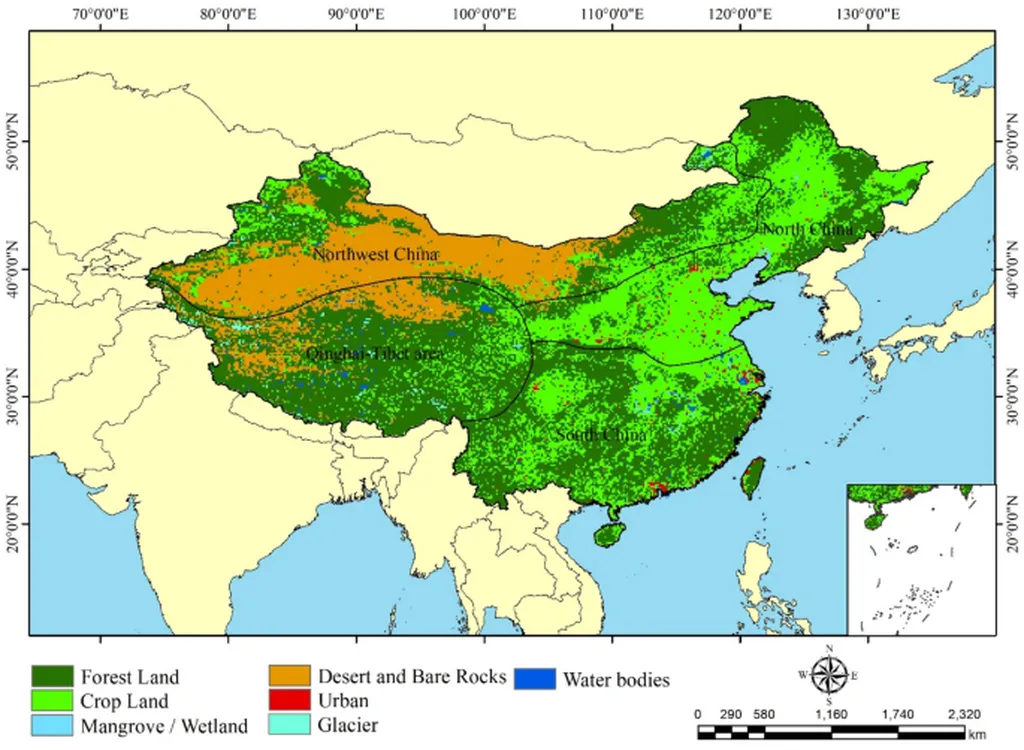In the vast, arid landscapes of Northwest China, a new study offers a beacon of hope for achieving carbon neutrality while boosting agricultural productivity. Published in *Open Geosciences*, the research led by Dai Yuting from Shaanxi Province Land Engineering Construction Group Co., Ltd., and Xi’an’s Shaanxi Agricultural Development Group Co., Ltd., delves into the spatiotemporal evolution and key influences on agricultural ecological efficiency (AEE) in the region.
The study, which analyzed panel data from five northwestern provinces over two decades (2003–2023), reveals a fluctuating but upward trend in AEE, with significant regional disparities. Shaanxi emerged as the top performer, while Ningxia lagged behind. The research identified three distinct stages in the evolution of AEE: an early phase dominated by input factors, a middle phase influenced by ecosystem services, and a late phase constrained by key limiting factors.
“Rural electricity consumption, agricultural diesel consumption, and the effective irrigation area were the core driving factors,” Dai Yuting explained. The study also highlighted the role of expected output in shaping the spatial pattern of AEE through a synergistic effect.
The findings carry substantial commercial implications for the agriculture sector. By establishing inter-provincial cooperation mechanisms, such as ecological compensation and technology transfer, the region could narrow the efficiency gap between high-performing and low-performing provinces. For instance, promoting water-saving irrigation and organic agriculture in low-efficiency areas like Ningxia and Qinghai could significantly enhance productivity and sustainability. Meanwhile, building green technology demonstration bases in high-efficiency areas like Shaanxi and Gansu could serve as models for best practices.
The study also advocates for the green transformation of agricultural energy. By promoting solar irrigation and electric agricultural machinery through subsidy policies, the region could reduce its dependence on diesel and improve the efficiency of water resources. The development of intelligent irrigation technology using the Internet of Things (IoT) could further revolutionize agricultural practices, making them more sustainable and efficient.
“This research provides a scientific basis for optimizing agriculture and achieving sustainable development in northwest China under the goal of carbon neutrality,” Dai Yuting noted. The insights could shape future developments in the field, encouraging policymakers and agricultural stakeholders to adopt innovative, eco-friendly practices.
As the world grapples with the challenges of climate change and the need for sustainable development, this study offers a roadmap for balancing ecological preservation with agricultural productivity. By leveraging technology and inter-regional cooperation, Northwest China could set a precedent for other regions striving towards carbon neutrality and sustainable agriculture.

